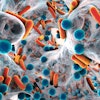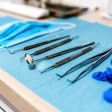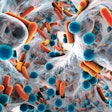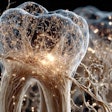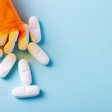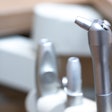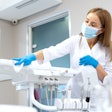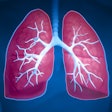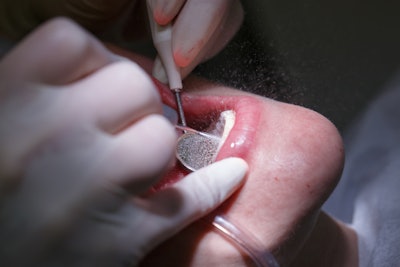
Dentistry and engineering researchers from the University of Illinois Chicago (UIC) have developed a tool to improve ventilation and capture droplets produced by ultrasonic scalers and drills, according to a recent university press release.
The VivaDent Aerosol Reduction Gel is designed to offer dental professionals a water-soluble solution that integrates into dental equipment to nearly eliminate airborne droplets, according to the September 3 release.
"Such a solution could be pumped through the dental chair as easily as water to have a low shear viscosity but should develop dramatically high elongational viscosity of viscoelastic origin in stretching, which prevents detachment of droplet tails from the main body of the irrigation fluid," Alexander Yarin, PhD, a professor at the UIC College of Engineering, said in the release.
The COVID-19 pandemic significantly impacted dentistry, forcing dentists to find ways to maintain safe environments while treating patients. Cavitrons, ultrasonic scaling tools used for cleaning teeth, are effective but aerosolize water and saliva, spreading bacteria and viruses, including COVID-19.
Droplets smaller than 20 μm can become airborne, increasing the risk of infection. To address this, researchers proposed using a dilute U.S. Food and Drug Administration-approved polymer solution to replace water, which would prevent droplets from becoming airborne, according to the release.
Despite pandemic restrictions, Yarin's lab quickly developed a proof of concept, and the product, VivaDent Aerosol Reduction Gel, was licensed to Ivoclar and released in the U.S. and Europe. The water-soluble gel integrates into dental equipment, nearly eliminating airborne droplets, improving safety, and enhancing visibility during procedures, creating a better experience for both dentists and patients.
The gel can be mixed in the dental chair's water supply bottle in one to three minutes, allowing a modified irrigation fluid to flow through scalers and drills without requiring extra instruments. In addition to preventing virus spread, dentists reported better visibility and comfort during cleanings, according to the release.
"From my own experience, I look forward to not having my glasses get wet or water running down my neck onto my shirt," Yarin added.


